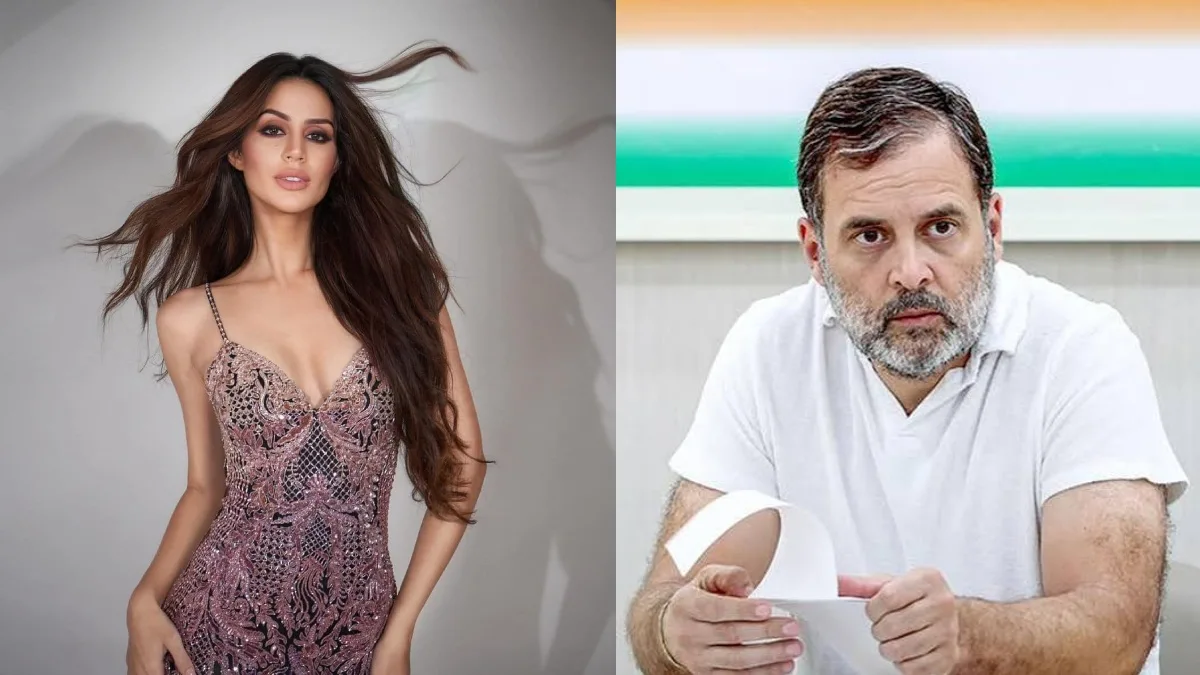When the daughter of a digital creator posted a casual Instagram photo of her holiday in Brazil, few might have predicted it would spark a wave of confusion, trolling and political discourse in India. Yet, that’s exactly what happened after actor-producer Aryan Khan’s partner Larissa Bonesi became suddenly caught in a swirling online storm—her Instagram wall inundated with comments from agitated Indians following a national political allegation.
It began with a televised press conference in which politician Rahul Gandhi claimed widespread “vote chori” (vote theft) during recent state elections. During the exchange, he mentioned the surname “Khan” and, in a moment that went viral, some viewers misheard or mis-interpreted it as “Khan with a Brazilian partner,” triggering a mismatch of identities. Larissa, a Brazilian influencer linked with Aryan Khan, was not involved in the political matter—but her social-media profile nonetheless became a target of online suspicion.
Almost immediately after the mis-reported name, Larissa’s posts—previously serene snapshots of travel, fashion and lifestyle—were swamped with comments from Indian users demanding explanations. Many messages read: “Are you involved in voter fraud?”, “Vote chori? Tell us what happened”, “We know you and Aryan—come clean”. Others simply posted droves of emoji-fire reactions and links to the electoral claim as though tagging her directly in a scandal she had no connection to.

What looks on its surface like a digital freak-event actually reflects a deeper pattern: in India’s hyper-connected media ecosystem, a celebrity’s personal account can become a blow-torch when misinformation and public curiosity intersect. Larissa’s international profile, Aryan Khan’s iconic family background and the emotive subject of electoral integrity created a combustible mix.
A few elements intensified the backlash: Larissa’s status as a non-Indian, the cultural ethnicity of “Khan”, and the timing aligned with electoral allegations. The thresholds for identification and guilt became dangerously low—people were ready to assume association simply through social connections. Even though the reality was that Larissa had no role in India’s elections, the momentum of public outrage ignored facts.
For Larissa, the experience was disorienting. In interviews later, Aryan acknowledged how his partner was overwhelmed. The picture she had shared as part of her usual travel-influencer feed wasn’t commentary on elections or Indian politics—it was a snapshot. Yet suddenly it landed in comment tabs filled with pointed demands and hashtags like #VoteChori.

From a media-culture perspective, this moment offers a cautionary insight. Public figures—especially those associated with well-known names—are perpetually two clicks away from undeserved scandal. And in the clatter of online voices, nuance often disappears. A name, a misheard phrase, a viral clip—these become triggers for digital mobs.
It also tells us something about how visibility works today. When a celebrity like Aryan Khan moves into the spotlight once again—either through a film, brand tie-in or social-media update—everything around him becomes searchable, sharable and subject to scrutiny. Friends, partners, in-laws—all become publicly tagged. For Larissa Bonesi, that meant her lifestyle posts suddenly required context, explanation and defence.
What’s important here isn’t just the misfire of identity but the larger expectation of celebrity clarity. Fans and followers now expect stars and their immediate circle to comment on anything connected to their names—even when the individuals named have no involvement. In faux-campaigns or real ones, the idea is: if you’re linked to someone influential, your narrative belongs to the public.

In Larissa’s case, the surge of confusion raises urgent questions about privacy, boundaries and responsibility in a digital age. Should a foreign influencer whose only linkage is a relationship with an Indian celebrity be subjected to politically charged commentary? And what role do platforms, algorithms and comment culture play in enabling such targeting?
For Aryan Khan, the incident highlights the collateral consequences of celebrity. He may be untangling politics from family life in the public eye now—but in truth, the incident reminds stars that even off-hand connections become headline-fuel. For public discourse, the episode is a mirror: the readiness with which millions tagged a young woman in a national scandal reveals how quickly identity becomes narrative.
In the end, what started as a party photo in Brazil became a case study in digital novelties—where globalization, celebrity, identity and politics converge in unexpected ways. For audiences, it serves as both spectacle and warning: the next time you scroll past a comment thread dredged with outrage, remember there might be someone on the other side—unprepared, unmentioned, yet instantly involved.


